Year-round well-point dewatering is a core service for NCS Fluid Handling Systems. Dewatering systems are installed in many cases, such as energy pipeline projects. NCS Fluid Handling Systems has the largest fleet of dewatering pumps and dewatering support equipment located in Canada and accessible in all of our 7 locations across Canada.
If we focus on a couple variables, then the techniques used to dewater soil vary. NCS Fluid Handling Systems designers use different techniques for coarse-grained soils versus that for fine grained soils. Coarse grained soils can be dewatered through the use of gravity which allows drainage into ditches, or deep wells. Then discharge of accumulated water using pumps to designated discharge location. Consult with the “NCS Fluid Handling Systems” engineers if additional filtration is required. Water sampling is available. Remote telemetry along with monitoring is available.
Well-point Dewatering AKA Sand-pointing, is just the process used to achieve both the, soil stabilization is also part of the objective.
Well-pointing is used to dewater construction projects such as pipeline installation or integrity digs. The excavation also requires soil stabilization in soils with low permeability with some silts or sandy silts.
Well-point dewatering are also incorporated into situations where sheet piles are used. The systems reduces hydraulic ground pressure. Stabilization is achieved by using a Vacuum pump. The vacuum is generated by pumps and simply, the vacuum generated increases the hydraulic gradient casing flow to the well-point.
The header pumps water away and is useful to drawdown more than 18 to 25 feet of ground water in low permeable soils. But other than having an excavation with water in it why does NCS Fluid Handling Systems design, engineering and technicians focus on all the ground and site-specific conditions to stabilize soil and deliver a dry excavation.
NCS Fluid Systems engineers may also recommend the use of deep well submersible pumps and to understand the proper application call NCS Fluid Handling Systems Innovation and Design center in Langley BC at 604- the call is free so why not.
In general, dewatering means modification of ground water by redirecting seepages, lowering the ground water table and simply reducing the water content in foundation soil to completely dry and stabilize the soil within an excavation ensuring the successful long-term use of assets such as water, gas or oil pipelines.
Any professional engineer who deals with soils should have good knowledge about the soil-water relationship. This is where NCS Fluid Handling Systems has gained customer trust and a solid reputation for delivering dry excavations. NCS Fluid Handling Systems designers consider ground hydrology with an emphasize on sub-surface flow characteristics and geological soil type and conditions. NCS Fluid Handling Systems designers work to ensure that our customers are aware of benefits reduction of ground water pressure and respective increase in soil stability and strength. The results of dewatering improve slope stability and the required increase in bearing capacity. This provides the required for the long-term utilization of such assets as water and energy pipelines.
Well point dewatering is not only required for on civil projects. Dewatering systems are also installed in other applications in mining projects.
The benefits of a properly designed, installed and operating dewatering system are as follows:
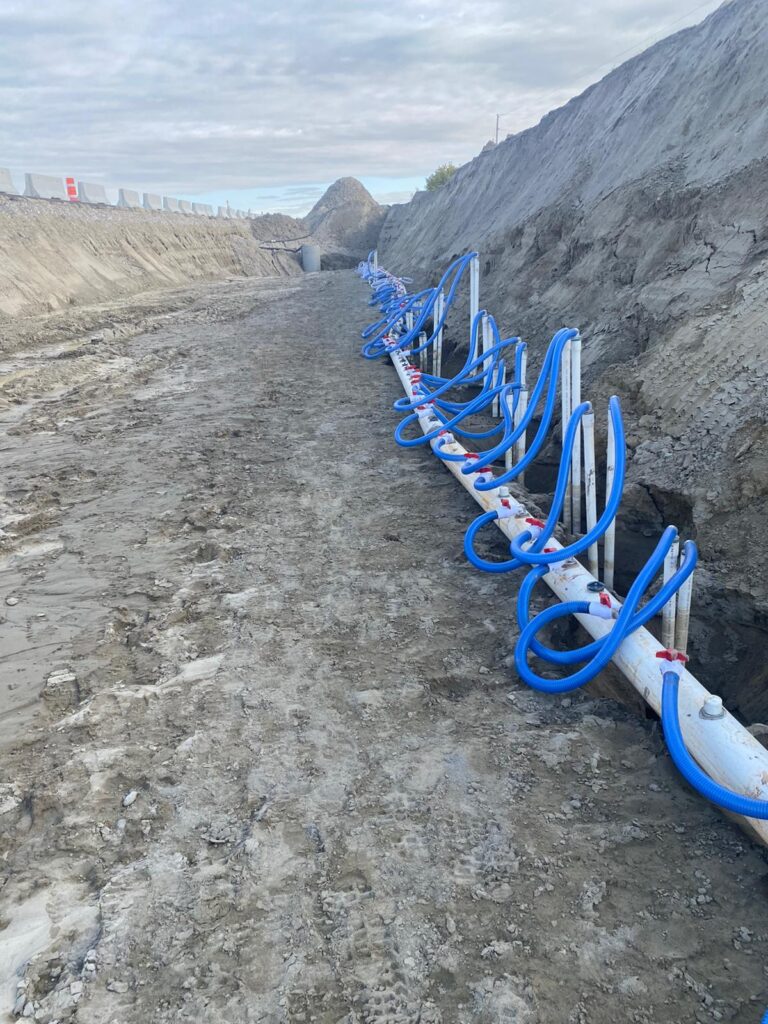
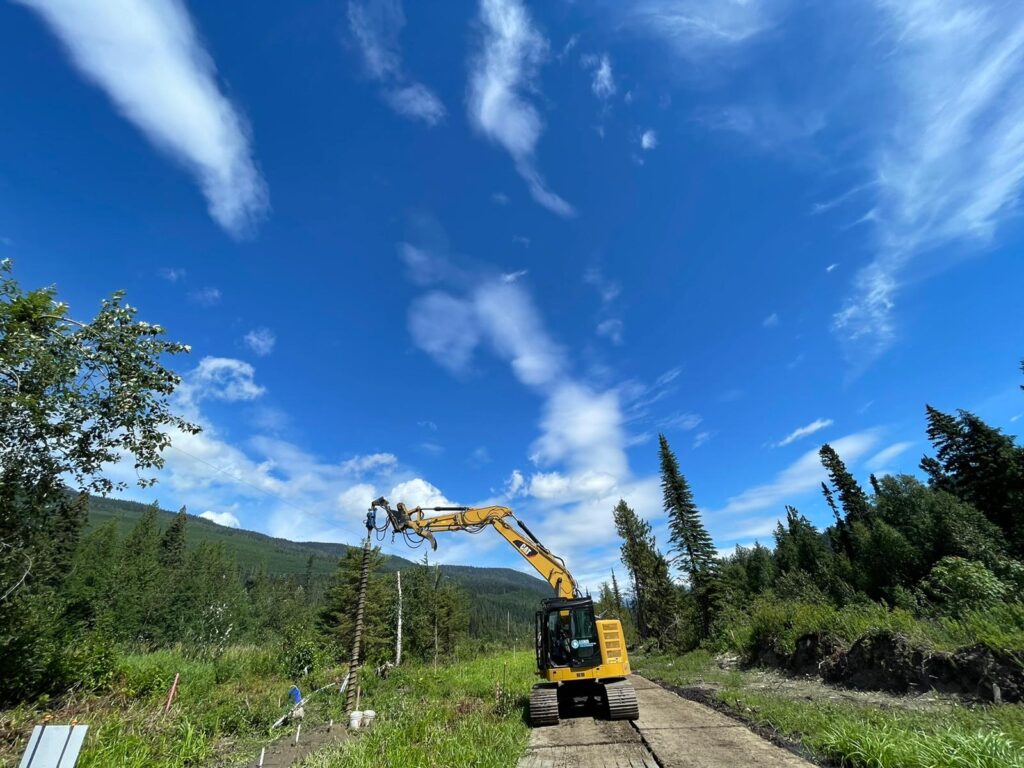
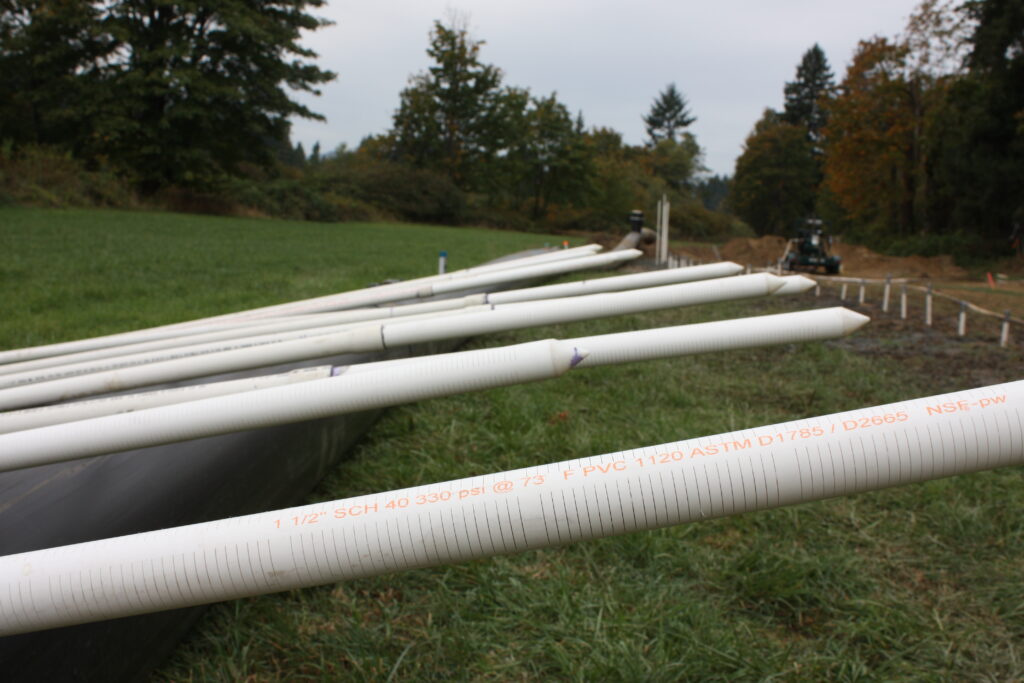
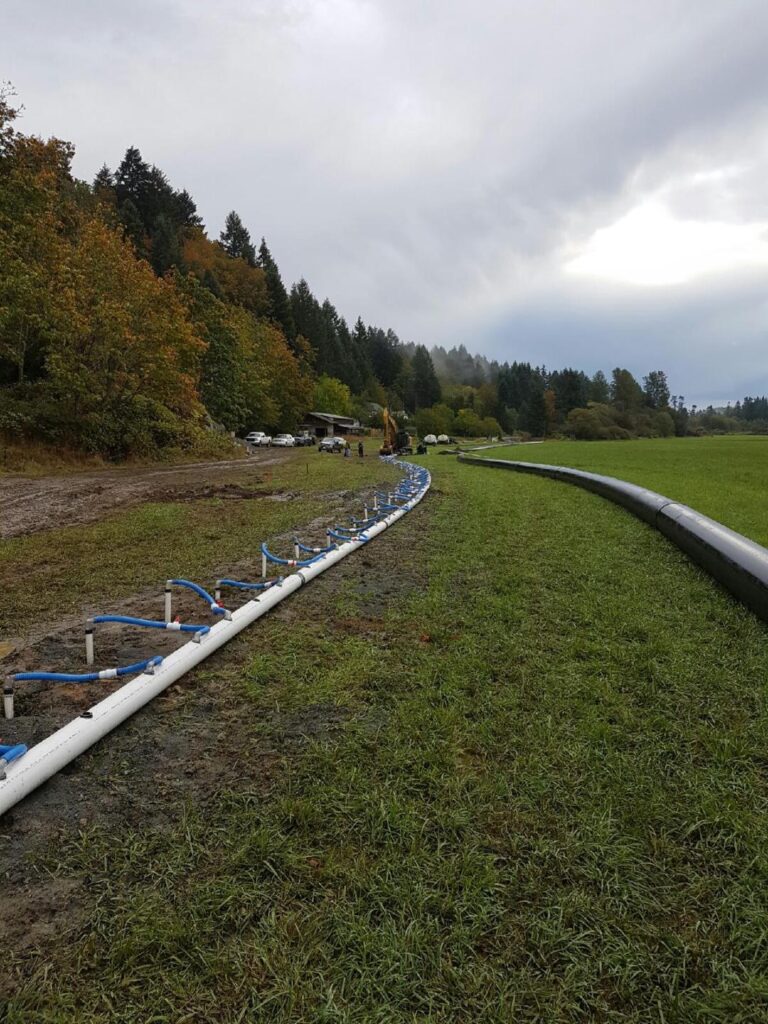
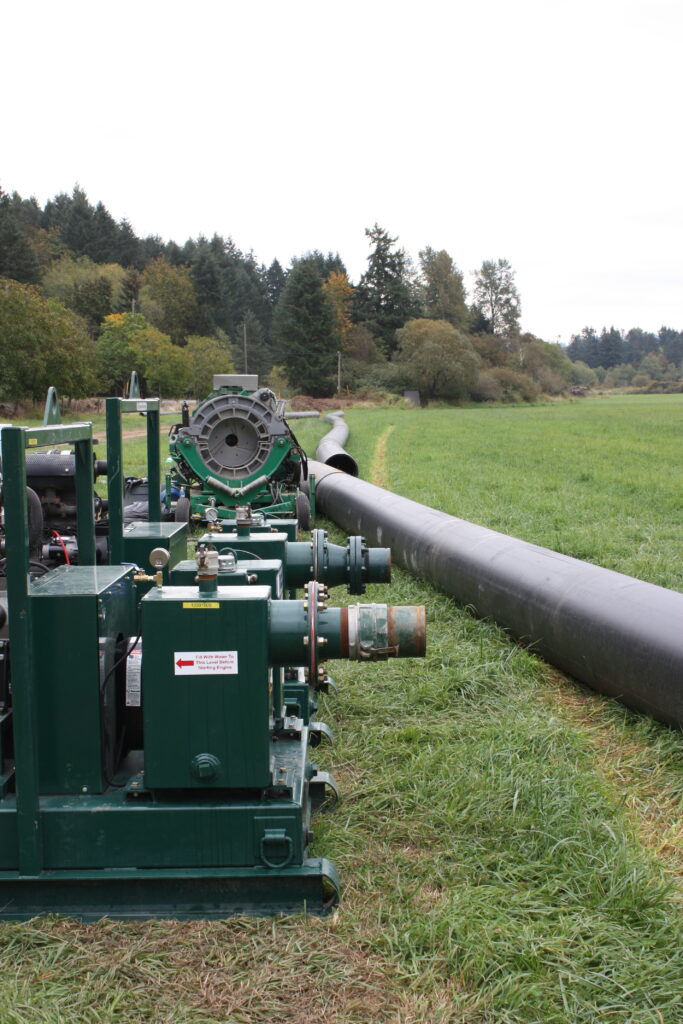
• To reduce or prevent excavation and installation from frost heaving, this can be seasonal changes but not limited to. Heaves put additional stresses on piping installations.
•To stabilize natural or constructed slopes
• To reduce surface erosion
• To treat granular soils by reducing their compressibility
• To decrease lateral pressures on retaining walls or foundation, even when items such as sheet piles are installed reduced ground water pressure add benefits to safety and stability.
• To provide increased bearing strength and capacity of compacted foundation soils
• To keep working place dry like excavation for dams, building foundations and tunnels.
• To prevent piping a phenomenon of migration of soil particles in groundwater
• To improve the transportation characteristics and/or the workability of borrow pit materials


